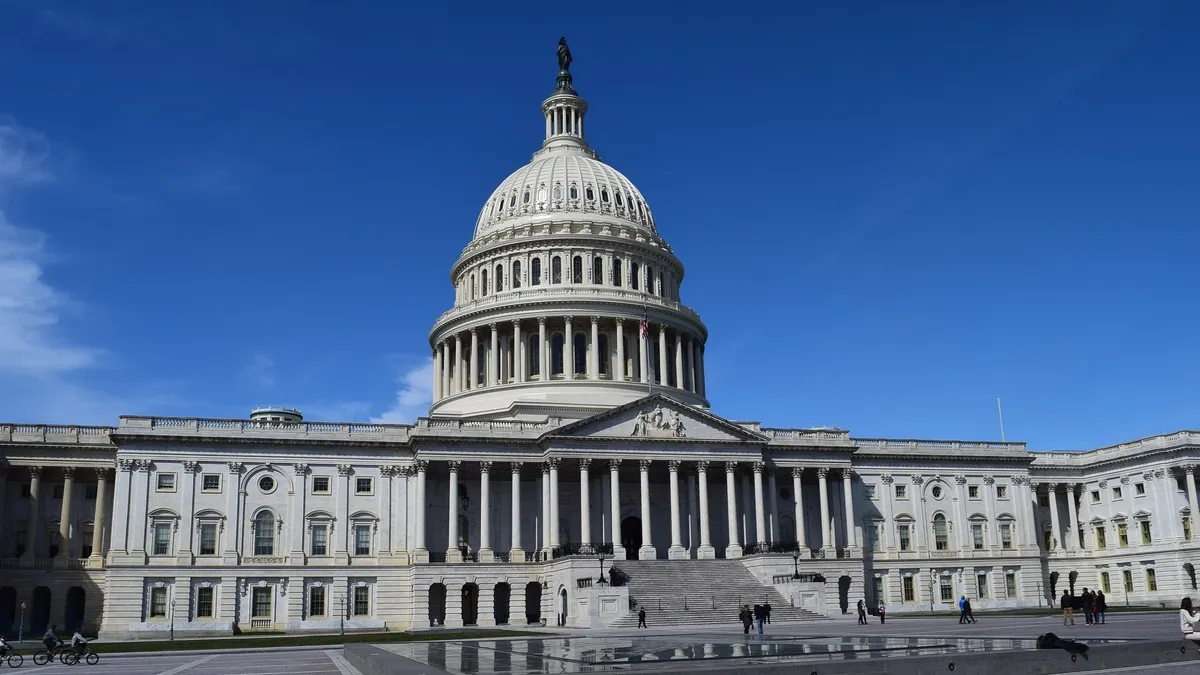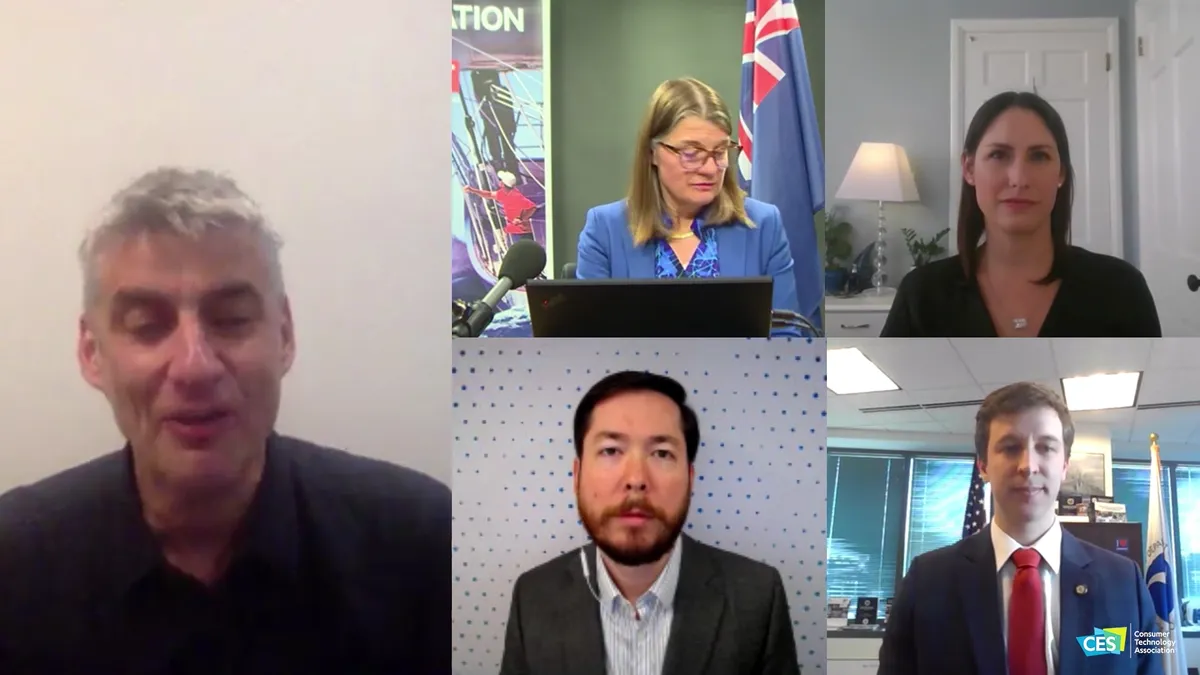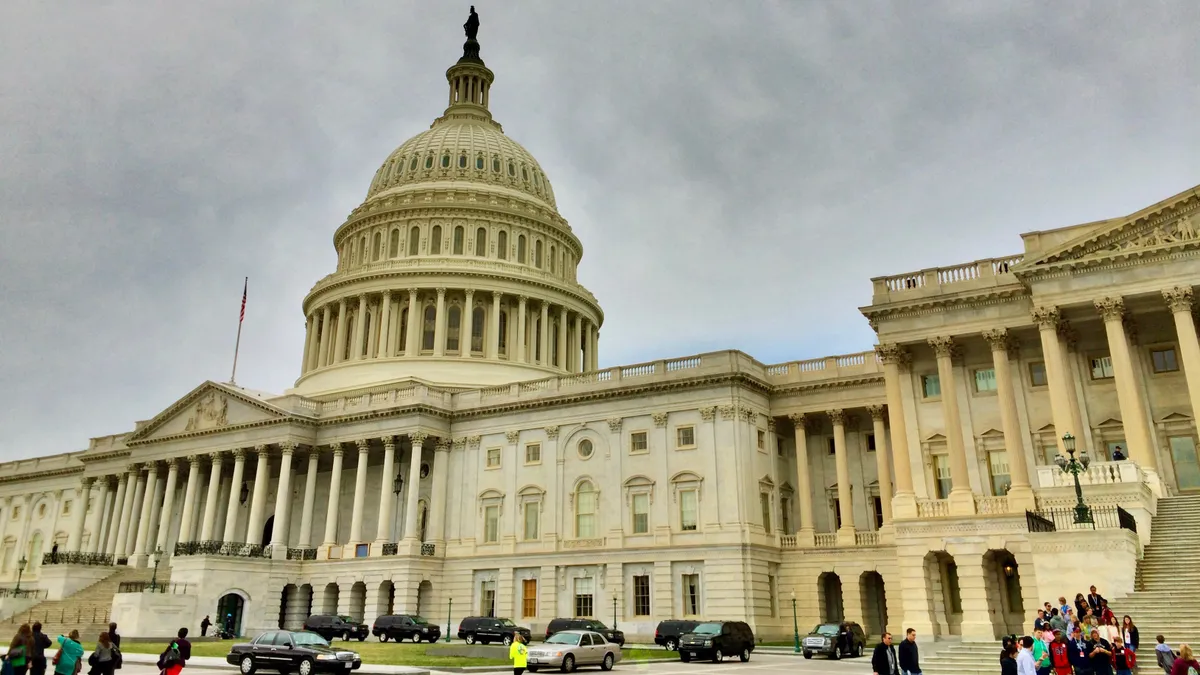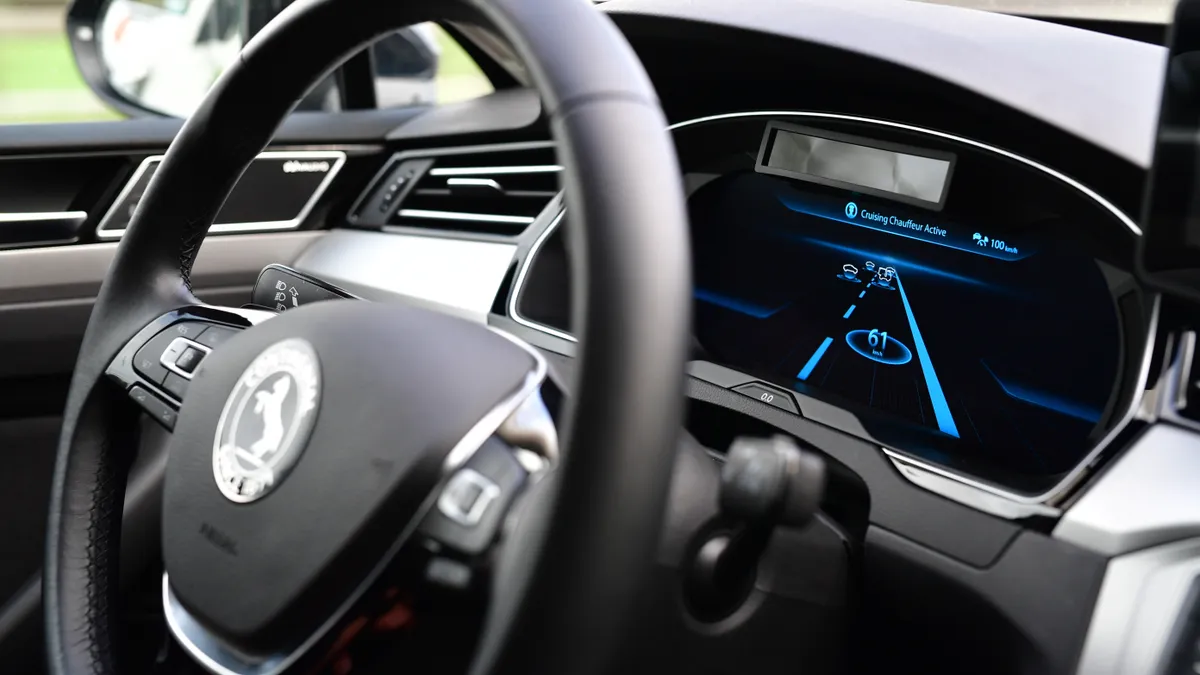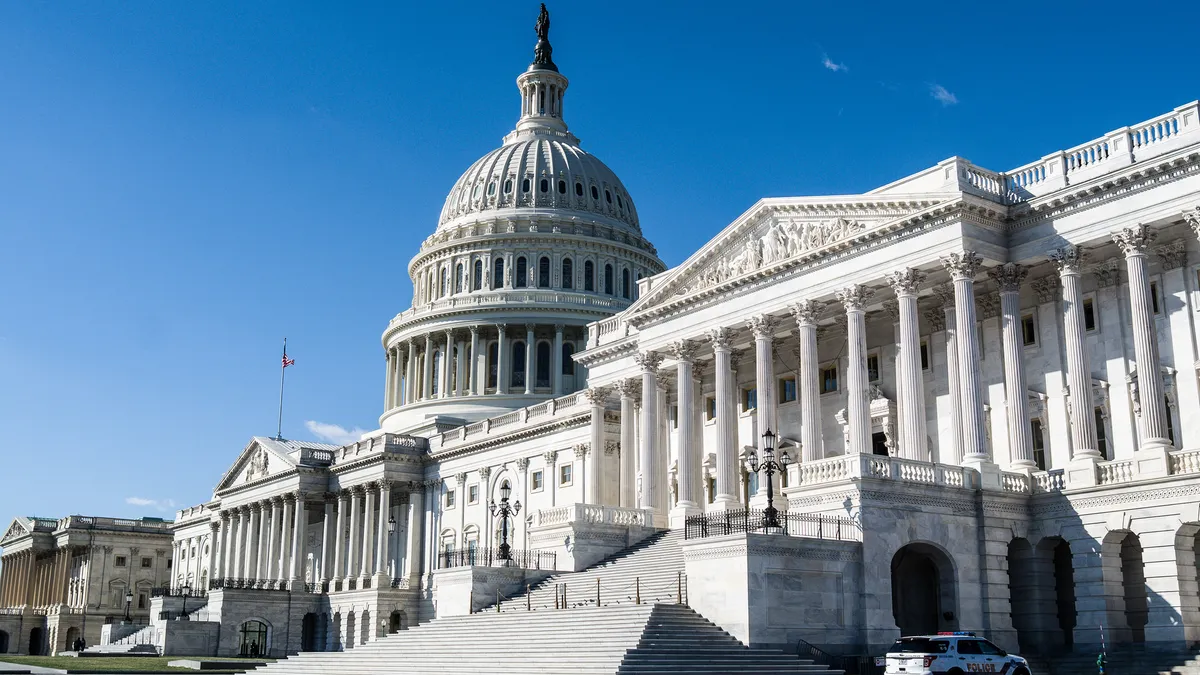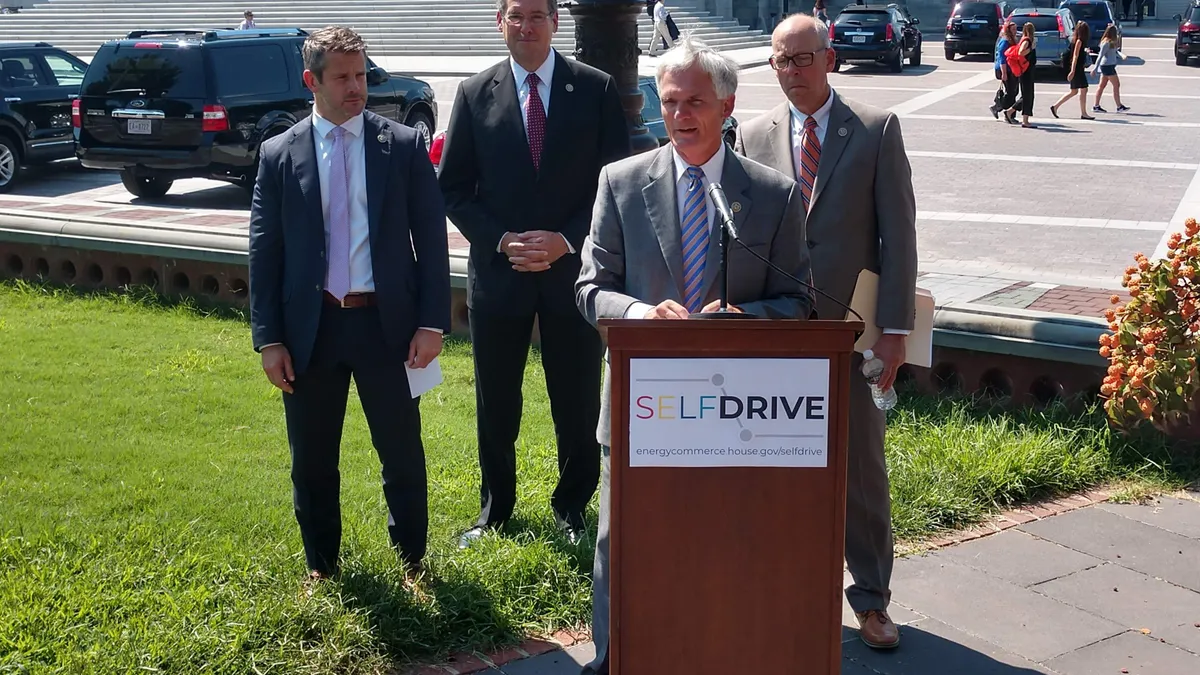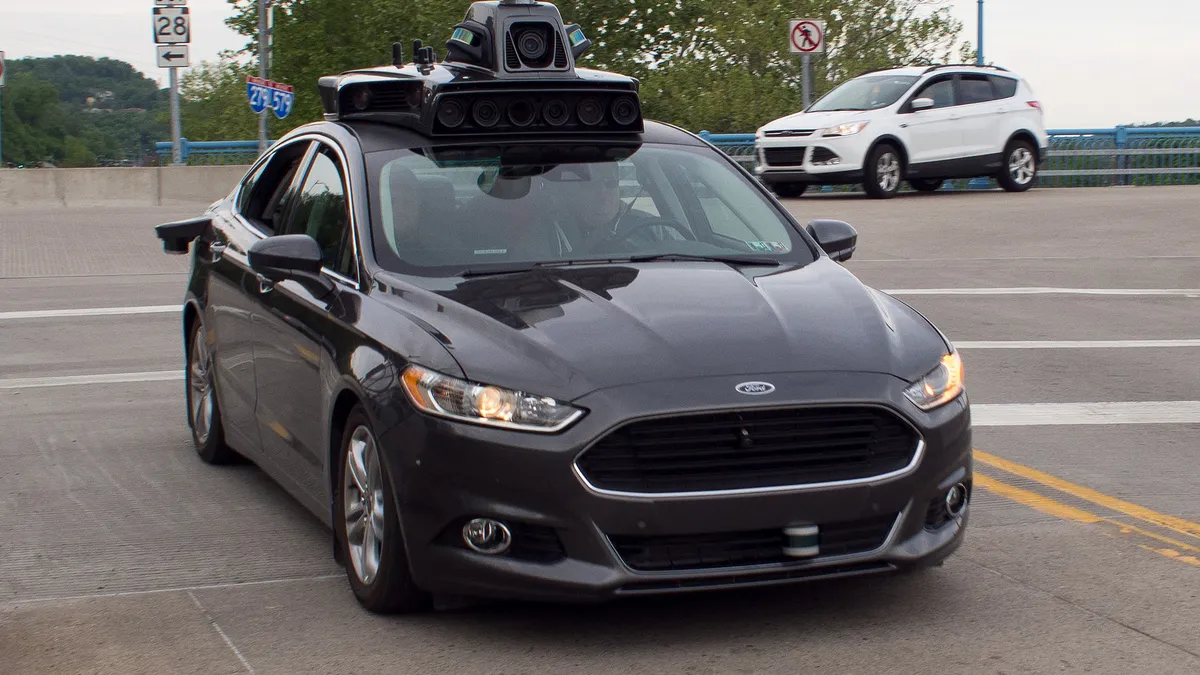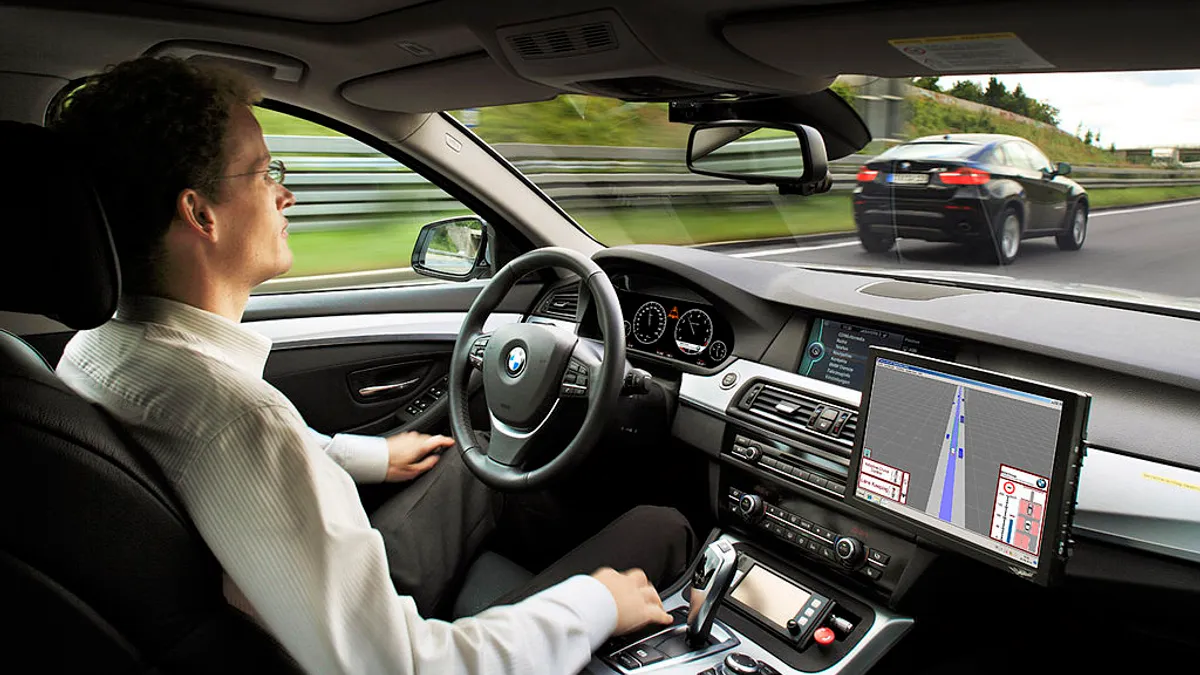Dive Brief:
- A new draft of federal legislation on autonomous vehicles (AVs) does not do enough to address ongoing safety concerns, multiple sources, including the National League of Cities, told Smart Cities Dive this week.
- Critics said draft text in Congress is inadequate as it gives the U.S. Department of Transportation (USDOT) 10 years to produce a plan on safety standards as AVs are rolling out. And while it would require AV companies to submit safety reports, it does not specify what content or metrics those reports should include. The bill would also prevent the Secretary of Transportation from acting to curb or prevent an AV deployment based on information in a safety report, something sources said could mean the public release of unsafe AVs that would have to be recalled.
- The text also came under fire for preempting state and city regulation of AVs in favor of waiting for federal rule making. In an email, a House committee spokesman declined to comment, other than to say the process is a "good faith effort to establish a safe framework for the deployment of AVs." "We are seeking feedback from stakeholders in order to reach consensus on this important legislation," he wrote.
Dive Insight:
Safety remains one of the leading concerns in AV testing and deployment among the public, and the need for greater safety provision was a hallmark of the National Transportation Safety Board's (NTSB) recent hearing on the fatal collision between an Uber-owned AV and a pedestrian in Tempe, AZ last year.
At that hearing, the NTSB recommended that submitting safety reports be mandatory and that they have specific requirements on content to avoid the "marketing material" that comes from some AV companies. It also called for more safety guardrails and criticized the National Highway Traffic Safety Administration (NHTSA) for not doing enough to promote safe testing practices.
The draft text, which is being prepared by staff on the House Energy and Commerce Committee and Senate Committee on Commerce, Science and Transportation, appears to have done little to address those concerns, or the calls from a diverse group of interested parties in August to prioritize safety in new AV legislation.
Concerns over AV safety contributed to the death of prior federal legislation late last year, after one bill passed the House but companion legislation floundered in the Senate. Lawmakers pledged to get straight back to it: U.S. Sen. John Thune, R-SD, said during a February event in Washington, DC that he was already looking to try again.
But while lawmakers have raised concerns previously over the impact of AVs on safety and the workforce, some said they are neglecting to put proper regulations in place.
"We're letting the wonder of innovation get in the way of making sound regulatory decisions both on a safety and workforce side," Larry Willis, president of the Transportation Trades Department (TTD), AFL-CIO, told Smart Cities Dive in a separate interview. "And I think we need to reverse that. We need to get our safety and labor policies right first and then figure out ways to promote innovation."
There is still a long way to go on this legislation, which is currently being released piecemeal, but there may be some reason for optimism among critics who want to see safety get more emphasis. At a Senate Commerce committee hearing in late November, Sen. Roger Wicker, R-MS, said it is important to discuss how "safety challenges can be addressed while continuing to move forward with this technology," and ensure safety is a "priority during testing."



